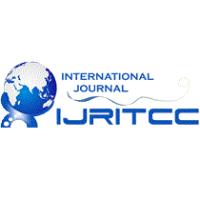Article,
An Adaptive Energy Efficient Reliable Routing Protocol for Wireless Sensor Network
International Journal on Recent and Innovation Trends in Computing and Communication, 3 (3): 1026--1029 (March 2015)
DOI: 10.17762/ijritcc2321-8169.150328
Abstract
Wireless sensor networks are networks of tiny sensing devices for communicating in using wireless technology. Wireless sensor networks are deployed in scenarios where any plant information should be available for industrial control applications. Cross-layer interaction is most important factor to gain maximum efficiency and also able to provide difficult interaction among the layers of the protocol stack. Hence to achieve this is challenging issue because latency, energy and reliability are at odds, and also resource constrained does not support complex algorithm. Wireless sensor networks have many protocols. In this paper Breath protocol is proposed for industrial control application .To minimizing energy consumption in network breath is designed for WSNs by which nodes attached to plants must carry information via through multi hop routing to sink. To optimize energy efficiency the protocol is based on randomized routing, medium access control, and duty-cycling. Alternate model of breath protocol ensures a long lifetime of the network by making effective distribution of workload in sensor nodes. Hence it shows as a good terminology for efficient, timely data gathering for industrial control applications.
